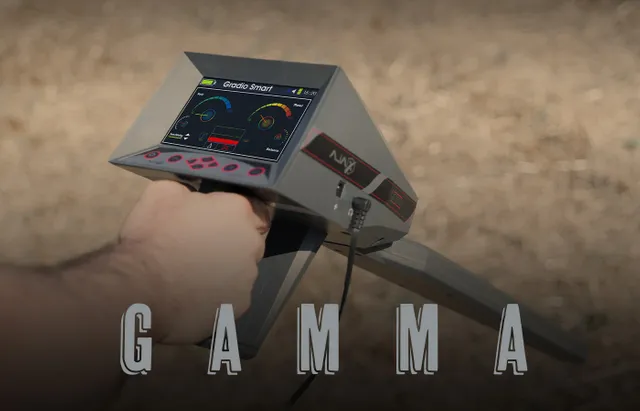From Deserts to Forests: Gold Detectors Built for All Exploration Environments
Gold prospecting is a thrilling journey that draws hobbyists, explorers, and professionals into some of the most remote and diverse terrains on Earth. Whether you're scanning the arid sands of a desert or navigating the lush, dense undergrowth of a rainforest, having the right equipment makes all the difference. Gold Detectors play a crucial role in this quest, and modern devices are now engineered to handle extreme and varied environments without compromising performance. In this article, we explore how gold detectors are designed to adapt to different landscapes, ensuring reliable detection wherever the hunt may lead.
Adapting to Arid Conditions: Gold Detectors in Deserts
Deserts pose unique challenges for gold hunters, such as extreme heat, dry sand, and mineralized soils. Gold detectors used in these environments must be equipped with advanced ground balance systems that can filter out the high levels of iron and other minerals commonly found in desert soils. In addition to ground balance, effective gold detectors feature thermal protection and rugged construction, allowing them to withstand intense temperatures and abrasive terrain.
High-frequency technology is also essential in deserts, as it increases sensitivity to small gold nuggets often buried in shallow, sandy soil. Lightweight, ergonomic designs further aid detectorists who cover large distances under the hot sun. The right detector becomes more than just a tool — it becomes a survival asset in these harsh landscapes.
Precision in Wet and Dense Forest Environments
Forests, with their moist soil, dense vegetation, and unpredictable weather, require a completely different set of specifications from gold detectors. Devices need to be waterproof or at least highly water-resistant to deal with dew, rain, and occasional submersion. A forest-friendly detector must also perform well despite the presence of wet organic matter and tree roots, which can distort or weaken signals.
Multi-frequency and pulse induction technologies are particularly effective in such environments, as they penetrate deeper and distinguish gold from other buried materials. Forest explorers also benefit from detectors with adjustable sensitivity and accurate discrimination settings to avoid signals from non-precious metals. In a dense forest, maneuverability is key, so compact, collapsible shafts and wireless headphones are often a valuable inclusion.
Versatility Across Changing Terrains
Not every prospector operates in a single environment. Some may journey from desert dunes to mountainous woods in one trip. For these adventurers, versatile gold detectors that function across various terrains are indispensable. Multi-terrain detectors are designed to automatically or manually adjust their settings based on the surrounding environment, ensuring that performance remains high regardless of where they're used.
These devices often feature customizable modes such as “Gold Field” or “All Metal” to optimize for different soil types and gold sizes. Detectors that offer GPS mapping, real-time target analysis, and strong battery life further enhance their adaptability. A truly all-environment gold detector enables freedom of exploration without sacrificing accuracy.
Durability and Portability for Extreme Exploration
Gold detection in extreme environments demands equipment that is not only functional but also physically resilient. Whether it’s bumping against rocks, being splashed with mud, or facing temperature fluctuations, detectors must be built with high-quality materials. Waterproof coils, reinforced control boxes, and corrosion-resistant components extend the life of a device.
In addition to durability, portability is crucial. Detectors that are easy to carry, with collapsible or modular designs, allow for quick deployment and storage. Battery packs with extended life and solar charging options provide power solutions in remote locations where charging access may be limited.
Choosing the Right Detector for Your Environment
When selecting gold detectors, consider where you’ll be using them most frequently. Research terrain-specific features and ensure the device supports your level of expertise. For beginners, simplicity and automated features may be more important than advanced customization. For seasoned hunters, the ability to fine-tune and adapt settings for different landscapes offers a deeper and more rewarding experience.
No matter the setting — from sun-scorched sand dunes to damp, shadowy forests — the right gold detector ensures that no golden opportunity is missed. With today’s technology, treasure seekers can go farther, dig deeper, and do so with greater confidence than ever before.
